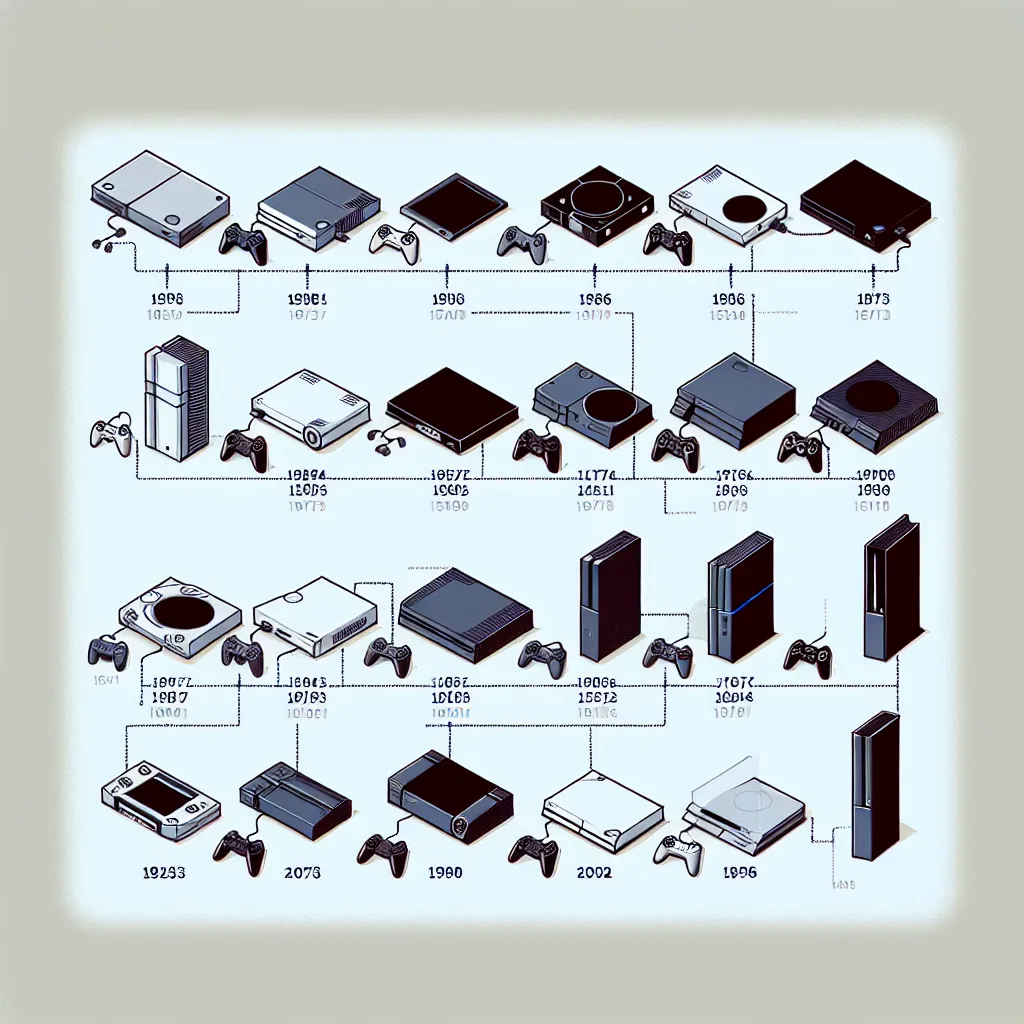The History of Gaming Consoles: From Pong to PlayStation 5
Gaming consoles have come a long way since the days of Pong, with each generation pushing the boundaries of technology and gaming experiences. The history of gaming consoles is a tale of innovation, competition, and the relentless pursuit of the ultimate gaming experience. It all began in the early 1970s when the first commercially successful home video game console, the Magnavox Odyssey, introduced the world to the concept of playing video games on a TV screen. This was followed by the iconic Atari 2600, which popularized game cartridges and became a cultural phenomenon.
The 1980s saw the rise of Nintendo with its Nintendo Entertainment System (NES), bringing beloved characters like Mario and Zelda into millions of homes. Sega also made a significant impact with its Genesis console, sparking the famous rivalry between Sega and Nintendo. The 1990s marked a turning point with the introduction of 3D gaming thanks to consoles like the Sony PlayStation and the Nintendo 64. These systems revolutionized gaming and laid the groundwork for the modern era of gaming consoles.
As we entered the new millennium, consoles such as the PlayStation 2, Xbox, and GameCube raised the bar even higher with improved graphics, online capabilities, and a diverse range of games. The subsequent generations brought innovations like motion control gaming (Wii), streaming services (PlayStation Now, Xbox Game Pass), and virtual reality (PlayStation VR). Fast forward to the present day, and we find ourselves eagerly anticipating the release of the PlayStation 5 and Xbox Series X|S, with promises of stunning 4K graphics, incredibly fast load times, and immersive gaming experiences.
The evolution of gaming consoles has been a remarkable journey, showcasing the relentless progress of technology and the unwavering passion of gamers and developers alike. With each new generation, gaming consoles continue to redefine what is possible in the world of interactive entertainment, and the future promises even more exciting advancements.
The Technological Advancements in Gaming Consoles Over the Years
Gaming consoles have come a long way since their inception, with each generation of consoles showcasing remarkable technological advancements. One of the key driving forces behind the evolution of gaming consoles has been the relentless pursuit of more powerful hardware and innovative features. Over the years, gaming consoles have witnessed significant improvements in processing power, graphics capabilities, storage capacity, and connectivity options.
Historically, gaming consoles relied on specialized processors and graphics chips designed to deliver the best gaming performance. However, with each new iteration, the hardware components have seen substantial upgrades, enabling more immersive and visually stunning gaming experiences. The introduction of dedicated graphics processors, high-speed RAM, and advanced cooling systems has been pivotal in pushing the boundaries of console gaming.
Furthermore, the evolution of gaming consoles has been closely intertwined with the development of display technology. Modern consoles now support high-definition and even 4K resolution gaming, providing crisp and detailed visuals that were once unimaginable. Additionally, advancements in display technologies such as HDR (High Dynamic Range) and high refresh rates have further elevated the visual fidelity of games on consoles.
Another noteworthy aspect of the technological advancements in gaming consoles is the expansion of storage capacity and the implementation of faster storage solutions. Early consoles had limited storage for game data, but the latest consoles feature high-capacity solid-state drives (SSDs) that drastically reduce loading times and provide ample space for storing large game libraries.
Moreover, connectivity features have also seen significant improvements, with modern gaming consoles offering seamless online gaming experiences, streaming capabilities, and access to a vast array of entertainment apps. The integration of wireless technologies, such as Bluetooth and Wi-Fi, has made it easier for players to connect with friends and access digital content.
In conclusion, the evolution of gaming consoles has been characterized by remarkable technological advancements, encompassing processing power, graphics capabilities, display technology, storage solutions, and connectivity features. These advancements have played a pivotal role in shaping the modern gaming landscape and have continually raised the bar for immersive and engaging gaming experiences.
The Impact of Gaming Consoles on Entertainment and Culture
The evolution of gaming consoles has had a profound impact on entertainment and culture. Since the introduction of the first home gaming console, the Magnavox Odyssey, in 1972, gaming consoles have revolutionized the way people interact with technology and media. The impact of gaming consoles on entertainment and culture can be seen in various aspects.
Firstly, gaming consoles have transformed the way people socialize and interact. With the advent of multiplayer gaming, friends and family can come together to play and compete, fostering a sense of camaraderie and friendly competition. Gaming communities have formed around popular titles, creating a unique subculture within the larger entertainment sphere.
Additionally, gaming consoles have influenced popular culture, spawning iconic characters and franchises that have become household names. Games like Super Mario, The Legend of Zelda, and Halo have not only shaped the gaming industry but have also permeated into mainstream media, from movies to merchandise, and even theme park attractions.
Furthermore, gaming consoles have become a significant form of storytelling, offering immersive narratives and interactive experiences that rival traditional forms of entertainment. Titles like The Last of Us, Red Dead Redemption, and Final Fantasy have captivated audiences with their compelling storytelling and memorable characters, elevating gaming to a legitimate art form.
Overall, the impact of gaming consoles on entertainment and culture has been vast and continues to shape the way people consume media and interact with technology. As gaming technology advances, the influence of gaming consoles on entertainment and culture will undoubtedly continue to evolve and expand.



